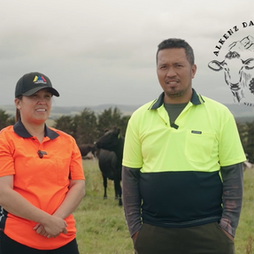top of page
Apex Blog
Practical Advice for Business Owners
Search
All Posts


End of Year News - 2025
Celebrating 10 years of supporting New Zealand businesses! Discover our 2025 highlights, key 2026 tax updates, client stories, and ways to get ahead over the holiday break. As we move into 2026, there are several policy and legislative changes that business owners should be aware of. Staying ahead of these shifts is vital for your planning and peace of mind. To help you prepare, our December 2025 newsletter provides a plain-English overview of what matters most and why it ma

Apex Accountancy
Dec 19, 2025


Business Fuel Cash Flow
Introduction: Think of cash flow as the fuel for your business vehicle. Without it, just like a car, your business can't move forward....

Apex Accountancy
Jun 19, 2025


EOY Checklists and Client Questionnaires
To help you stay organised and make the most of the 2024–2025 tax year, we’ve created a suite of helpful resources.

Apex Accountancy
Apr 22, 2025


2024: A Year of Growth and Success
As the year comes to a close, we at Apex Accountancy want to express our heartfelt gratitude for your trust and support in 2024. Working...

Apex Accountancy
Dec 17, 2024


Success Story - Alkenz Dairy, Invercargill
Farming transcends being just a profession; it embodies a passion that necessitates a mix of hard work, dedication, and vision. We're...

Apex Accountancy
Jun 12, 2024


Visa Holders - Know Your Stay Limits!
AEWV WORK VISA CHANGES Welcome to another insightful episode of #CaffeineandCoinswithCristina! Today, let's dive into the significant...

Apex Accountancy
Apr 29, 2024


5 Stock Picks for 2024
Hello, financial enthusiasts! 🚀☕️ We're thrilled to bring you the latest episode of Caffeine and Coins with Cristina . Dive into a...

Apex Accountancy
Feb 21, 2024


Navigating Debt and Insolvency
Expert Insights from Caffeine & Coins with Cristina Welcome back to another episode of "Caffeine & Coins with Cristina," where we blend...

Apex Accountancy
Jan 25, 2024
bottom of page
